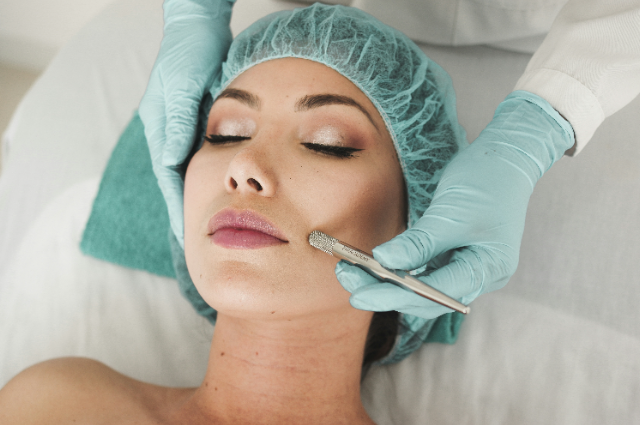
Photo by karelys Ruiz on Unsplash
Cosmetic surgery used to be something we associated with movie stars or the extremely wealthy—something distant and rare. But today, it feels like everyone knows someone who’s had “a little work done,” whether it’s botox, fillers, or even major surgical procedures. What’s changed? A lot of it comes down to how cosmetic surgery is portrayed and talked about—especially by celebrities, in the media, and on social media. While it’s great that people now feel more open about their choices, we also need to pause and ask: what effect is this having on how we see ourselves and each other?
Ours is not the first generation to have categorised what beauty is, especially in regards to women. Be it the golden ratio or the overused hourglass hand gestures, unknowingly, we have in our minds that one kind of beauty is superior to the others. What is ironic is that the other beauties would’ve rocked had they been born in different eras. Women before us endured the pain of tight corsets, intentionally consuming tapeworm eggs, and whatnot, only for us to say that needles and silicone are the way to go.
Let’s understand the role of celebrities in normalising getting cosmetic procedures done. Their influence on beauty standards is nothing new, but in recent years, we’ve seen more and more public figures subtly—or not so subtly—altering their appearance. Whether it’s a new nose, a jawline transformation, or seemingly ageless skin, these changes often become the subject of headlines and gossip. The problem is, many celebrities aren’t open about what they’ve done. They credit their glow-ups to diet, water, or skincare, which sends a confusing message. Young people growing up with these images might start to believe that looking “perfect” is just part of growing up—or worse, that something is wrong with them if they don’t. Celebrities are often seen speaking of body positivity and their struggle with body image issues. They craft relatability with their audience, making it further difficult to differentiate between what is okay and what is not for the general public, especially young girls, however, even boys aren’t exempt from the scrutiny anymore.
Traditional media isn’t innocent in this either. Magazines and TV shows love to celebrate transformations, turning cosmetic surgery into a “before-and-after” success story. The message is subtle but powerful: better looks mean a better life. When we see this over and over, it’s easy to start thinking that our natural features need fixing, or that our worth is tied to how well we fit a certain mold. These ideas don’t just stay on screen—they seep into how we see ourselves and others in everyday life. What is also commonly seen is the exact opposite content, highlighting that a person's looks don’t determine their success. While this might seem like a positive image, it doesn’t help eliminate the bias but reinforces it.
And then there’s social media. Platforms like Instagram, TikTok, and Snapchat have taken all of this to a whole new level. Now it’s not just celebrities showing off their enhancements—it’s influencers, peers, even classmates. Cosmetic procedures are no longer private or hush-hush; they’re filmed, posted, and shared like makeup tutorials. We’re constantly exposed to edited, filtered versions of people who look impossibly flawless. Even more concerning, some people are turning to cosmetic surgery not after years of insecurity, but after scrolling through a few too many “perfect” faces online. It’s a cycle: insecurity leads to surgery, surgery is glamorised online, and that leads to more insecurity for others.
That said, it’s important to acknowledge the other side of the conversation. For many people, cosmetic procedures are empowering. If someone chooses to enhance a feature that has long made them feel self-conscious, and it genuinely boosts their confidence, that’s valid. The problem isn’t cosmetic surgery itself—it’s the pressure to have it to feel beautiful or accepted. When choice becomes expectation, we lose something important: the ability to feel comfortable in our natural skin. When the choice is so heavily influenced by routine exposure to a certain ideology, it doesn’t remain a choice anymore.
In the end, what’s most concerning is how normal all of this has become. Surgery is often marketed as self-improvement, not a serious medical procedure with risks and long-term implications. We’ve created a culture where looking “perfect” is considered normal, and being natural is seen as brave or unusual. That’s a dangerous shift.
So, what can we do? We can start by being more honest and critical about the messages we consume. We can support people who are transparent about their choices and push back against unrealistic beauty standards. Most of all, we can remind each other that beauty comes in many forms—and that real confidence doesn’t need a scalpel or a syringe.
